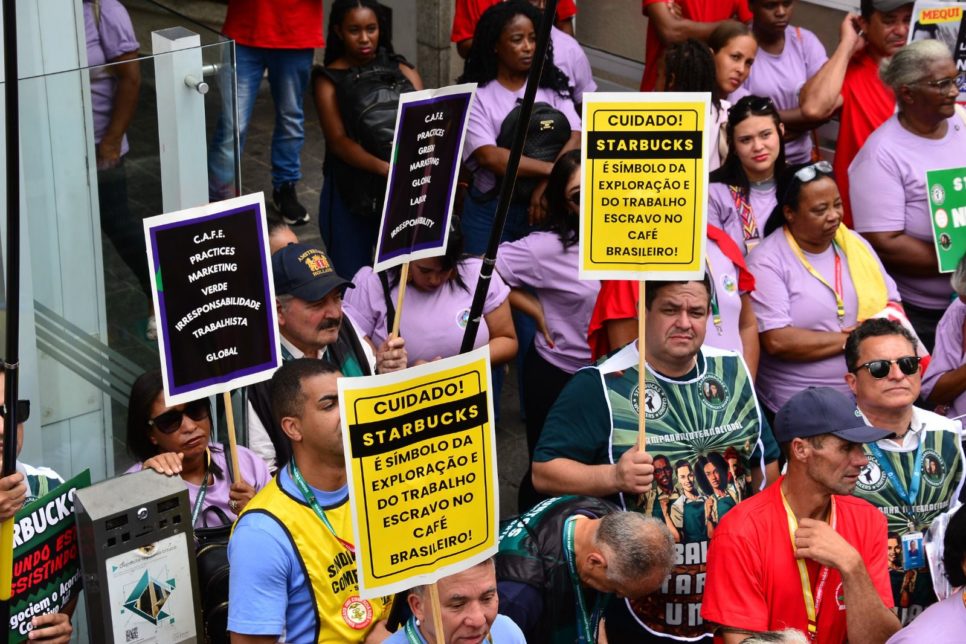“O amanhã é hoje”: film exposes the impacts of climate change on the lives of brazilians
The film is about the stories of people affected by climate change in Brazil and shows that preservation of the Amazon Rainforest is fundamental to the future of all of us.
 Maranhão, Brazil 27-09-2018 Reports about people affected by climate change. Photographs of Celiana in the indigenous land Krikati in the municipality of Montes Altos in the state of Maranhão. Photos : Fernando Martinho.
Maranhão, Brazil 27-09-2018 Reports about people affected by climate change. Photographs of Celiana in the indigenous land Krikati in the municipality of Montes Altos in the state of Maranhão. Photos : Fernando Martinho.
The impacts of climate change have already reached the Brazilian people, in towns and in the countryside, in the north and in the south, and the consequences are being deeply felt. Some of these stories are in the documentary “O Amanhã é hoje – o drama de brasileiros impactados pelas mudanças climáticas” (Tomorrow is today – the drama of Brazilians impacted by climate change), released this Thursday (6/12) in the Espaço Brasil of the COP 24, The UN Climate Change Conference, being held in Katowice, in Poland. This initiative of seven civil society organisations, tells how the lives of 6 people in 5 Brazilian states were affected by changes in the climate. Watch the documentary here: www.oamanhaehoje.com.br.
Among the cases presented in the documentary is that of a young indigenous women who became a voluntary fire brigade member after an unprecedented forest fire hit the indigenous land of her people, the Krikati; a young female agricultural worker in the Pernambuco sertao who experienced six years of drought; the coastal community who after hundreds of years had to move location due to erosion caused by a rise in the sea level; the salesman from the state of Rio who saw his business ruined by the rain and landslides that left hundreds dead in Friburgo (RJ), in 2011; an oyster farmer in Santa Catarina who was punished by the increase in sea temperature; the woman who lost two cars, in Santos (SP), due to the increasingly high and violent waves that are hitting the Brazilian coast.
The documentary also contains reports by specialists like the USP Economics Lecturer, Ricardo Abramovay, Researcher Carlos Souza, from Imazon, and Climatologist, José Marengo, from INPE. They have signed two unprecedented reports that reveal how deforestation, in particular in Amazônia, are compounding the impacts of the climate on farming production, water supplies in the country, greenhouse gas emissions, forest fires, among others, affecting many Brazilian people.
Read more
See:
“A Amazônia precisa de uma economia do conhecimento da natureza“, by Ricardo Abramovay, Senior Lecturer on the Environmental Science Programme at the USP Institute for Energy and the Environment.
“Mudanças Climáticas: impactos e cenários para a Amazônia“, by José Marengo, General Coordinator of Research and Development at Cemaden and Carlos Souza Jr, Senior Researcher at Imazon.
“The reports show that keeping Amazônia alive is fundamental not only for those who live there. The government has a duty to preserve our forests and fulfil its goals of reducing emissions because this means protecting all Brazilians.” Said Fabiana Alves at Greenpeace.
The documentary is the work of Articulação dos Povos Indígenas do Brasil (Apib), Artigo 19, Conectas Human Rights, Engajamundo, Greenpeace, Instituto Alana and Instituto Socioambiental (ISA).






